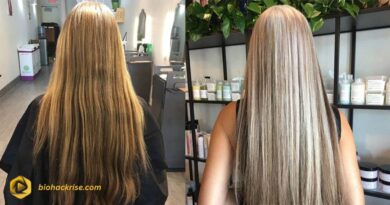Are Veneers Bad for Your Teeth? Complete Truth You Need to Know
When you see a celebrity with a perfect, dazzling smile, there’s a good chance veneers are behind it. Veneers have become one of the most popular cosmetic dental treatments in the world, giving people the confidence to smile wide. But here’s the big question that many ask before committing to the procedure: Are veneers bad for your teeth?
Let’s take an honest, in-depth look at what veneers actually do to your teeth, the potential risks and how to make sure your oral health stays strong if you decide to get them.
What Exactly Are Dental Veneers?
Before deciding if veneers are harmful or not, it’s important to understand what they really are. Veneers are thin shells made from porcelain or composite resin that are custom-designed to fit over the front surface of your teeth. They’re primarily used for aesthetic purposes to fix issues like chipped, discolored, misaligned, or unevenly spaced teeth.
Here’s how they work: your dentist removes a small layer of enamel (usually about 0.5mm) from the front of each tooth to make space for the veneer. Then, the veneers are bonded to the teeth using a special adhesive. The result? A bright, even, picture-perfect smile that looks natural when done right.
There are two main types of veneers:
- Porcelain Veneers: Durable, stain-resistant, and mimic the natural translucency of real teeth.
- Composite Veneers: Made from resin material, less expensive, but not as long-lasting as porcelain.
Veneers can last anywhere from 10 to 20 years, depending on how well you care for them. But while the cosmetic benefits are undeniable, some people worry about what happens to their natural teeth beneath those beautiful shells.
The Procedure: What Happens to Your Teeth During Veneer Application
To apply veneers, your dentist needs to reshape the surface of your teeth by removing a thin layer of enamel. This step is necessary for the veneers to fit seamlessly and look natural. However, once enamel is removed, it doesn’t grow back.
This process isn’t inherently bad, but it’s irreversible. That’s why veneers are considered a permanent dental treatment. Once you’ve had enamel removed and veneers applied, you’ll always need to have them or replace them when they wear out.
The bonding process uses dental cement and a curing light to secure the veneers. When done by an experienced cosmetic dentist, it’s completely safe. Problems only arise when the procedure is done incorrectly or when aftercare is neglected.
Are Veneers Bad for Your Teeth? The Honest Answer
So, let’s address the main question head-on: No, veneers are not bad for your teeth when they’re done properly.
In fact, veneers can actually protect damaged enamel and improve your oral health in some situations. However, they do require responsible care and expert application. The potential downsides usually come from poor dental practices or neglecting oral hygiene.
Here are some potential risks to be aware of:
- Tooth Sensitivity: Removing enamel can make teeth more sensitive to hot and cold.
- Permanent Alteration: Your natural teeth will always need veneers once enamel is removed.
- Decay Under Veneers: Poor hygiene can lead to cavities around the edges of veneers.
- Gum Irritation: If veneers don’t fit properly, they can irritate gums or cause inflammation.
But again, when done by a skilled dentist using quality materials and proper bonding, veneers are considered safe, effective, and long-lasting.
The Science Behind Veneers: How They Interact with Your Teeth?

Veneers are designed to be biocompatible, meaning they don’t harm your gums or the underlying tooth structure. Porcelain veneers, especially, are non-porous and stain-resistant, which helps prevent discoloration and plaque buildup.
The bonding cement acts as a protective seal, shielding your teeth from further wear or damage. However, this only remains effective as long as the bond is strong and you maintain good dental hygiene.
If you grind your teeth or have gum disease, your dentist may recommend addressing those issues before getting veneers. Otherwise, you risk premature veneer failure or dental complications.
Common Misconceptions About Veneers
There are plenty of myths about veneers floating around online, and it’s time to clear them up:
- Myth 1: Veneers destroy your teeth.
Truth: Only a minimal amount of enamel is removed, and the procedure doesn’t damage the inner tooth. - Myth 2: Veneers make your teeth rot underneath.
Truth: Decay can occur only if oral hygiene is neglected, not because of the veneers themselves. - Myth 3: Veneers look fake.
Truth: Modern porcelain veneers are incredibly natural-looking when done by a skilled dentist. - Myth 4: Veneers are only for celebrities.
Truth: Veneers are now widely available and affordable for everyday patients.
The Benefits of Getting Veneers
Veneers offer more than just a cosmetic upgrade. They can actually improve your overall dental function and self-confidence. Here’s what makes them so popular:
- Natural Appearance: Porcelain reflects light similarly to natural enamel.
- Durability: With proper care, veneers can last over a decade.
- Stain Resistance: Coffee, tea, or red wine won’t easily stain them.
- Custom Fit: Each veneer is made specifically for your teeth.
- Immediate Results: You can achieve a stunning smile in just a few visits.
People often report feeling more confident and smiling more after getting veneers proof that they don’t just change your teeth; they can change how you feel about yourself.
RELATED POST: Sliced Pickles Crunchy, Tangy and Totally Irresistible
Potential Drawbacks of Veneers You Should Know
While veneers can transform your smile, they’re not without a few downsides. Understanding these drawbacks helps you make an informed choice before investing time and money in this cosmetic procedure.
First, the cost can be a significant factor. Veneers, especially porcelain ones, can range between $900 to $2,500 per tooth depending on your location and the dentist’s expertise. Since they’re considered cosmetic, most dental insurance plans don’t cover them. That means you’ll likely be paying out of pocket.
Next, as mentioned earlier, veneers require removal of some enamel. Once that enamel is gone, it’s gone for good. This makes veneers an irreversible treatment you’ll always need some kind of covering for those teeth moving forward.
Another issue to consider is sensitivity. After getting veneers, some people experience mild to moderate tooth sensitivity when consuming hot or cold foods. This usually subsides within a few weeks, but in some cases, it can persist.
If veneers are not properly bonded, bacteria can sneak underneath, leading to decay or discoloration. That’s why working with a qualified, experienced cosmetic dentist is critical. A poorly done veneer job can lead to discomfort, bite issues, or even gum inflammation.
Finally, veneers can chip or crack just like real teeth, especially if you bite on hard objects, chew ice, or grind your teeth. While porcelain is durable, it’s not indestructible.
So, while veneers are not inherently bad for your teeth, they do demand commitment both financially and in terms of oral care.
Veneers vs. Crowns vs. Bonding: Which Option Is Better?
It’s easy to confuse veneers with other dental treatments like crowns or bonding. All three can enhance your smile, but they serve different purposes.
| Treatment | Purpose | Tooth Coverage | Durability | Cost Range (per tooth) |
| Veneers | Cosmetic enhancement | Front surface only | 10–20 years | $900–$2,500 |
| Crowns | Restore damaged teeth | Entire tooth | 10–15 years | $800–$1,800 |
| Bonding | Fix chips and gaps | Partial coverage | 3–10 years | $300–$600 |
If your tooth structure is healthy and you’re mainly looking for an aesthetic boost, veneers are the best choice. If your teeth are decayed or weakened, crowns provide more protection. Bonding, on the other hand, is great for minor fixes but isn’t as durable or stain-resistant.
Understanding these distinctions ensures you choose the treatment that fits your specific needs and long-term goals.
How to Care for Veneers and Protect Your Natural Teeth?
The good news is, caring for veneers is not much different from caring for natural teeth but consistency is key. Here’s how to make your veneers last as long as possible:
- Brush Twice Daily: Use a soft-bristled toothbrush and non-abrasive toothpaste to avoid scratching the veneer surface.
- Floss Regularly: Clean between your teeth daily to prevent plaque buildup around the veneer edges.
- Avoid Hard Foods: Chewing on ice, hard candy, or pens can cause veneers to crack.
- Limit Staining Agents: While veneers resist stains, your natural teeth still don’t so coffee, red wine, and smoking can create contrast.
- Use a Mouthguard: If you grind your teeth at night (bruxism), wear a protective mouthguard to prevent veneer damage.
- Schedule Regular Checkups: Visit your dentist every 6 months for cleaning and veneer inspection.
Remember, veneers don’t decay, but the natural tooth underneath can. Maintaining proper oral hygiene ensures both stay in top shape for years.
When Veneers Might Not Be Right for You?
Even though veneers are safe and effective, they’re not ideal for everyone. Some people may need alternative treatments to achieve similar results. You might want to reconsider veneers if:
- You have severe gum disease or ongoing dental decay.
- You suffer from bruxism (tooth grinding) that could damage veneers.
- You have thin enamel or weakened teeth, making veneer bonding difficult.
- You’re looking for a temporary or reversible cosmetic fix.
- You have budget constraints, since veneers are an investment.
In such cases, your dentist may suggest alternatives like dental bonding, teeth whitening, or orthodontic treatments instead.
The Role of Your Dentist: Why Expertise Matters
The success of your veneers depends largely on who applies them. A skilled cosmetic dentist will carefully evaluate your teeth, bite alignment, and gum health before recommending veneers. They’ll also ensure minimal enamel removal and create a natural fit that complements your facial structure.
Poorly fitted veneers, however, can lead to:
- Uneven bite pressure
- Gum recession
- Increased tooth sensitivity
- Visible edges or bulky appearance
Always check your dentist’s credentials, before-and-after photos, and patient reviews before committing. A consultation is a great opportunity to ask questions and ensure you feel comfortable with the procedure.
Do Veneers Weaken Teeth Over Time?
This is one of the most common concerns people have. The short answer: no, veneers don’t weaken teeth when done correctly.
The thin layer of enamel removed doesn’t compromise the tooth’s overall strength. Once bonded, the veneer acts like a protective barrier, often adding durability to slightly worn or chipped teeth.
However, neglecting oral care or choosing an inexperienced dentist can lead to problems. If the tooth underneath develops decay or the bond weakens, the veneer might detach or require replacement.
To prevent this, maintain regular dental visits and avoid habits like chewing hard objects, biting nails, or grinding teeth.
Porcelain vs. Composite Veneers: Which Is Safer for Your Teeth?
When it comes to long-term safety and appearance, porcelain veneers usually come out on top. Here’s a quick comparison:
| Feature | Porcelain Veneers | Composite Veneers |
| Durability | 10–20 years | 4–8 years |
| Stain Resistance | Excellent | Moderate |
| Aesthetic Quality | Very natural-looking | Less translucent |
| Cost | Higher | Lower |
| Repairability | Harder to fix | Easier to repair |
Porcelain veneers require more enamel removal but last significantly longer and provide a flawless finish. Composite veneers are cheaper and less invasive but may discolor and wear faster.
Both are safe when applied by a qualified dentist. Your choice depends on your budget, goals, and desired longevity.
What Happens If You Remove Veneers?
If you ever decide to remove veneers, it’s important to know that the teeth underneath will not look the same. Since enamel has been shaved down, your natural teeth will appear smaller and possibly more sensitive.
That’s why veneers are considered a lifelong commitment. You can replace them with new ones, but you can’t go back to your untouched teeth.
Dentists typically recommend replacing veneers every 10–20 years, depending on wear and maintenance. With good care, some patients even keep them longer.
How to Choose the Right Dentist for Veneers?

Choosing the right dentist can make or break your veneer experience literally. This isn’t a quick cosmetic touch-up; it’s a precise art form that requires skill, training, and an eye for aesthetics. Here’s how to ensure you’re in the right hands:
- Check Qualifications: Look for a dentist who specializes in cosmetic dentistry and has advanced certification or training in veneer procedures.
- Review Past Work: Always ask for before-and-after photos of previous patients. This gives you a realistic expectation of what your results may look like.
- Ask About Materials: A trustworthy dentist will explain the difference between porcelain and composite veneers and help you choose the best one for your situation.
- Look at Technology Used: Modern practices use digital smile design and 3D imaging to customize veneers precisely for your facial features.
- Discuss Longevity and Maintenance: A good dentist won’t just focus on the look—they’ll guide you on how to maintain the veneers long-term.
- Read Patient Reviews: Genuine testimonials from real patients say more than flashy ads.
Your dentist should also make you feel comfortable, answer every question thoroughly, and never pressure you into the procedure. Remember: veneers are a permanent change, so you deserve to feel confident in your decision and your dentist’s expertise.
The Longevity of Veneers: How Long Do They Really Last?
A common misconception is that veneers last forever. While they are durable, they do have a finite lifespan. On average:
- Porcelain veneers: 10 to 20 years (sometimes even 25 with excellent care).
- Composite veneers: 5 to 8 years before needing replacement or refinishing.
Their lifespan largely depends on your oral hygiene, diet, and habits. People who brush, floss, and visit their dentist regularly often enjoy veneers that last decades. Conversely, grinding teeth, chewing hard foods, or smoking can drastically shorten their lifespan.
Here’s a quick longevity checklist to help your veneers go the distance:
- Visit your dentist every 6 months for checkups.
- Avoid using your teeth as tools (e.g., opening packages).
- Use fluoride toothpaste to strengthen exposed enamel.
- Wear a mouthguard if you grind your teeth at night.
- Don’t skip professional cleanings plaque buildup can damage the bond between veneer and tooth.
The better your care routine, the longer your veneers will shine.
Can Veneers Cause Gum Problems or Tooth Decay?
If veneers are properly placed and you maintain good oral hygiene, they do not cause gum disease or tooth decay. However, problems can occur if you neglect your daily dental care or if veneers don’t fit properly.
Improperly fitted veneers can irritate gums or trap food particles, leading to inflammation, bleeding, or gum recession over time. Similarly, if you don’t brush and floss daily, plaque and bacteria can build up around the veneer edges, resulting in decay on the natural tooth beneath.
To prevent this:
- Make sure your dentist checks gum health before placement.
- Maintain regular cleanings and scaling appointments.
- Avoid sugary or acidic foods that promote bacterial growth.
- Report any gum discomfort or swelling immediately.
Healthy gums are the foundation of a long-lasting, beautiful smile. With the right care and precision dentistry, veneers should enhance—not compromise—your oral health.
Alternatives to Veneers: What to Consider Before Deciding
If veneers seem too permanent or costly, don’t worry there are other options to achieve a brighter, more uniform smile. Here are some popular alternatives:
- Teeth Whitening: Great for discoloration, though it won’t fix chips or shape issues.
- Dental Bonding: Uses resin to repair minor imperfections affordable and reversible, but less durable.
- Orthodontics (Braces or Invisalign): Correct misalignment or gaps naturally, though the process takes longer.
- Enamel Shaping: A quick fix to subtly reshape uneven teeth edges.
Each option has its pros and cons, and your dentist can help determine what suits your dental health, aesthetic goals, and budget best.
Are Veneers Worth It? A Cost-Benefit Perspective?
At first glance, the price tag on veneers can seem steep. But consider the long-term return on investment—confidence, aesthetics, and function. Veneers can last a decade or more, making them a cost-effective cosmetic solution compared to repeated whitening treatments or temporary fixes.
Pros:
- Instantly improves your smile aesthetics.
- Long-lasting and low-maintenance.
- Boosts self-esteem and confidence.
Cons:
- High upfront cost.
- Irreversible enamel removal.
- Requires maintenance and eventual replacement.
If you’re someone who values a lasting, confident smile and is ready for the commitment, veneers are absolutely worth the investment.
Expert Opinions: What Dentists Really Say About Veneers
Dental experts agree that veneers are safe, effective, and minimally invasive when done correctly. According to the American Academy of Cosmetic Dentistry (AACD), porcelain veneers have a 95% satisfaction rate among patients.
Dentists emphasize that the key lies in customization and professional application. Veneers are not “one-size-fits-all.” Every case should be planned carefully based on your teeth’s structure, bite, and gum health.
As Dr. Sarah McKenzie, DDS, puts it:
“Veneers aren’t bad for your teeth. What’s bad is rushing into them without proper planning or maintenance. When done right, they protect teeth and create a naturally beautiful smile that lasts for years.”
This aligns with the general consensus in cosmetic dentistry: veneers are a safe, long-term enhancement when combined with healthy dental habits and professional expertise.
FAQ’s
Do veneers damage your natural teeth?
No, veneers do not damage your teeth when applied correctly. Only a thin layer of enamel is removed, and the veneer acts as a protective covering.
Can you get cavities under veneers?
Yes, it’s possible if you neglect oral hygiene. Plaque buildup around the veneer edges can lead to decay in the natural tooth beneath.
Are veneers reversible?
No, the process is permanent since enamel removal cannot be undone. You’ll always need veneers or a similar covering afterward.
How do you know if veneers are right for you?
Schedule a consultation with a cosmetic dentist. They’ll evaluate your teeth, gums, and bite to determine if veneers are suitable.
How can you make veneers last longer?
Brush twice daily, floss regularly, avoid biting hard objects, and attend professional cleanings every six months.
Conclusion
Veneers aren’t bad for your teeth they’re a modern dental miracle that, when properly done, combine art and science to create the perfect smile. Like any investment, they require maintenance and responsibility, but the payoff is immense. A radiant, confident smile can open doors, boost self-esteem, and improve your overall quality of life.
If you’re considering veneers, start with a consultation. Discuss all pros and cons with your dentist, weigh your options, and make a decision that aligns with your oral health goals and budget. The key is not just having veneers it’s having them done right.




